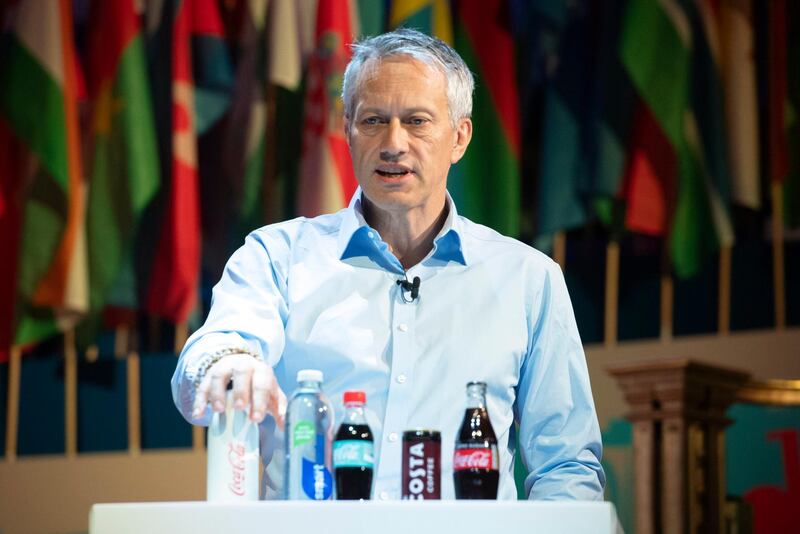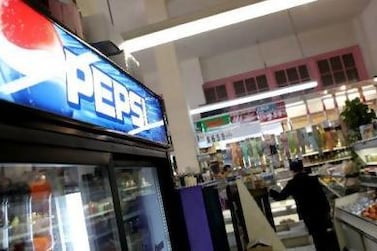Coca Cola’s ambitious target to produce entirely recyclable packaging by 2030 will require more than digital solutions alone, according to the company's chief executive, who called for regulatory change and assistance from global business partners.
“We have to reframe what we're trying to achieve and how we are attacking the problem [of not being sustainable], “ said James Quincey, speaking at the One Young World Summit in London on Thursday.
“We need a lot of global infrastructure — it can’t just be solved digitally or on the internet with an app, it needs physical infrastructure to be built. It takes collective action, especially on the recovery and collection of the packages.”
Mr Quincey said while the market requires "laws in some countries to be changed", the biggest gap lies in the collection of used Coca Cola products.
Tens of thousands of pieces of plastic littering the planet come from just a handful of multinational corporations, environmental pressure group Break Free from Plastics said on Wednesday, naming Coca-Cola, Nestle and PepsiCo as the worst offenders.
The coalition's volunteers collected nearly half a million pieces of plastic waste during a co-ordinated "World Clean Up Day" in 51 countries a month ago, of which 43 per cent were marked with a clear consumer brand. For the second year in a row, it said, Coca-Cola came out on top, with 11,732 pieces of plastic collected from 37 countries across four continents — more than the next three top global polluters combined.
Coca Cola has pledged to have 100 per cent recyclable packaging and bottles by 2030 globally and 2025 in Western Europe.
"Both in advanced economies and in developing and emerging economies this is a solvable problem," said Mr Quincey.
Last month, the soft drinks giant said it will collect a bottle or can for every product it sells. It also revealed its first ever sample bottle made using recovered and recycled marine plastics, where coke bottles are produced with old ocean debris.
“We're going to use 50 per cent of it [previous bottle waste] back in our own cans. Part of the reason why it's only 50 per cent is there's lots of other people competing for that plastic because it's one of the highest quality of reusable plastics,” Mr Quincey said.
“At the moment we use 88 per cent recyclables. We still have a little way to go in terms of designing our packaging to be a 100 per cent sustainable — but that'll happen in a short space of time.”
The company said it currently collects 59 per cent of its packaging and reuses nine per cent of that in its own bottles.
Although Mr Quincey said that driving up plastic collection was “the biggest challenge”, he added that the company is already making headway in emerging economies such as Kenya, South Africa and Vietnam, bringing recovery levels from low single digit percentages to around 70 per cent.
“Yes, laws need to change and we need innovation to help us along," he said. "But with today’s technology this problem can be solved in a relatively short space of time and we are dedicated to working with partners around the world to get that done.”







